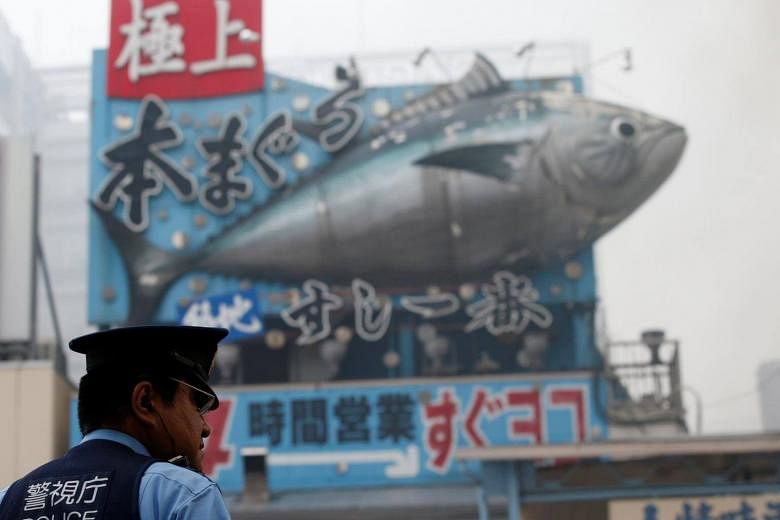TOKYO - Japan's famed Tsukiji fish market will move to a new waterfront address next year but the planned demolition of its existing site in Tokyo could breed a new problem - its rat problem spreading to high-rise apartments, eateries and even the upscale Ginza district.
The popular tourist attraction has long been a home for rodents, mostly brown rats, that feast off ample fish scraps and nest in the market's many nooks and crannies.
According to the local government's estimate in 2015, about 500 rats inhabit the market. The figure does not include the market's seafood area where rodents are frequently spotted, so the tally is probably much higher, reported Japan Times.
"Rats won't be spotted in the morning when the market is packed with people... But they come out when it's quiet, like on days the market is closed," said Takao Katsumi, a metro government official in charge of inspecting the fish market.
Officials and pest control experts fear that once the market is torn down, the rodents may migrate to neighbouring areas where high-rise apartment buildings and eateries are located.
"We've never experienced the closure of a facility this big. So it's hard to even predict what could actually happen," Katsumi was quoted as saying by Japan Times.
"We need to step up our rat-control operations."
Tatsuo Yabe, head of the research group Nezumi Kujo Kyogikai (Rat Extermination Association), told Japan Times the rodents can easily reach the upscale Ginza district, which is only a few minutes' walk away from Tsukiji.
"They may roam in nearby areas for a while, possibly for a year or so", and will settle only when they realise there is enough food to feed all of the newcomers, said Yabe, who is also the author of Nezumi ni Osowareru Toshi (Cities Attacked By Rats).
"It could coincide with the 2020 Tokyo Olympics, when many foreign tourists are expected to visit Ginza."
One of the biggest concerns is that the spread of the rat problem may bring infectious diseases, including leptospirosis, which is spread by rodent urine either through direct contact or contaminated soil or water, Yabe said.
The Tokyo metropolitan government is stepping up pest extermination and control efforts. It has purchased more than 80,000 sheets of glue traps, which will be distributed to local residents ahead of the planned relocation to the Toyosu waterfront area and Tsukiji's demolition, tentatively scheduled for November next year.
The vacant site now occupied by Tsukiji will be used for the 2020 Tokyo Olympics and Paralympics as a logistics base.
The authorities also have around 240 trap boxes, reported Japan Times.
Rat control operations will include placing snap traps inside sewage, and laying traps near garbage disposal sites or shrubs.
Poisonous bait may also be thrown into rats' nests.
The good news is that sewer rats are more likely to take poisonous bait than are cautious black rats, according to Yabe.

